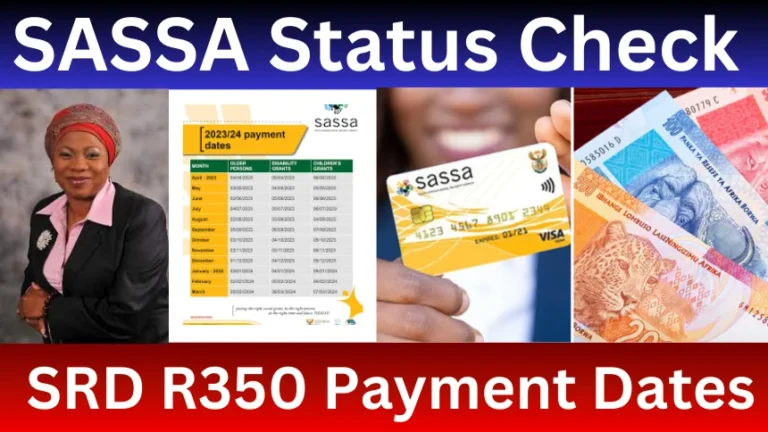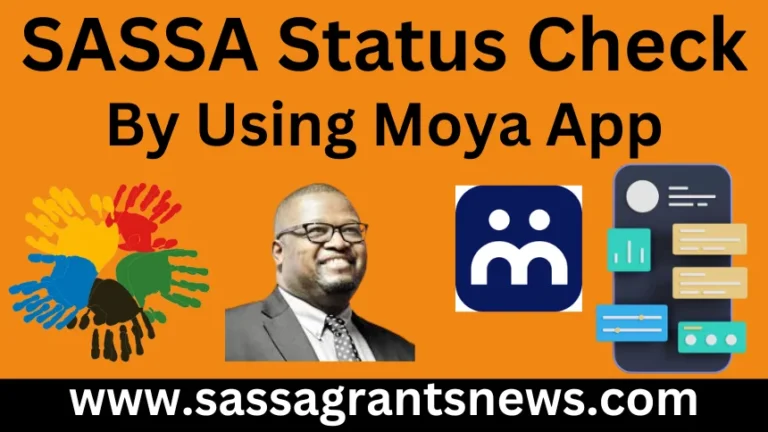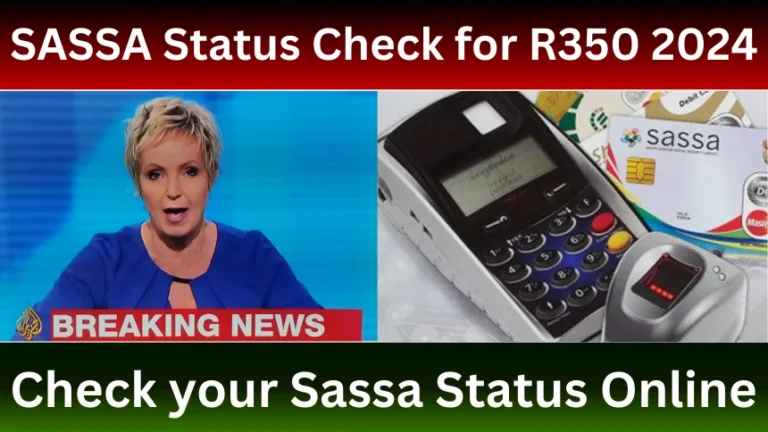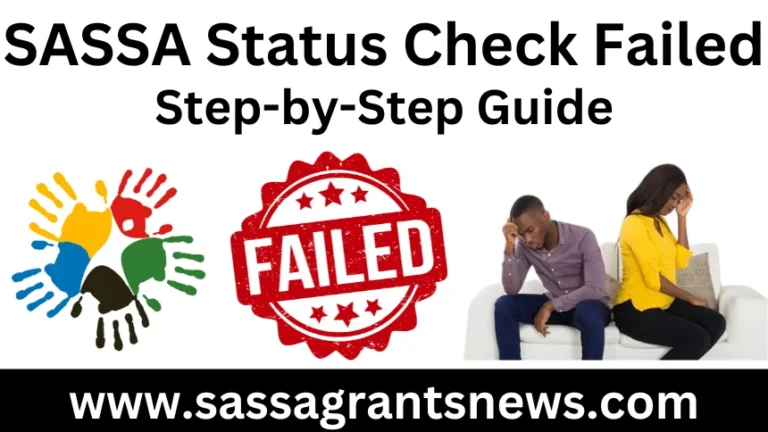Coalition and SASSA Beneficiaries
Coalition and SASSA Beneficiaries in South Africa’s political landscape has changed significantly following the formation of a new coalition government. Beneficiaries of the South African Social Security Agency (SASSA) have experienced a wave of uncertainty and anticipation as a result of this change.
The new government structure will have a direct impact on the daily lives of those who rely on social grants, so it is important to fully understand what it means for them.
A discussion of the coalition government’s potential implications for SASSA beneficiaries will be provided, along with tips on preparing for the changes.
Also Read About: How to Change SASSA Banking Details for SRD R350 in 2024
How the Coalition Government Works
An outright majority is not won by a single political party in an election, leading to a coalition government. Governments formed in such cases are formed by multiple parties. The parties involved in this type of governance often negotiate and compromise to create a unified policy agenda. In addition to leading to more balanced decision-making, it can also result in delays and conflicts as different parties attempt to push their agendas.
Role of SASSA
South African Social Security Agency (SASSA) oversees the distribution of social grants to millions of South Africans. In accordance with constitutional and legislative provisions, its mission is to provide comprehensive social security services against vulnerability and poverty.
Through SASSA’s work, many citizens, particularly those from low-income households, benefit from financial assistance that is essential for their survival and well-being.
SASSA Grant Types
There are several types of Social Grants administered by SASSA, each designed to help one or more vulnerable groups of SASSA Beneficiaries:
- SRD Grant: The Social Relief of Distress Grant (SRD Grant) is meant for South African Citizens, Refugees, Asylum Seekers and Special Permit Holders who are between the ages of 18 and 60 years old, have insufficient means, do not receive social grants on behalf of themselves/him or are not eligible for UIF payments and have no other source of financial assistance.
- Old Age Grant: This grant is provided to elderly South Africans who are 60 years old or older and meet certain financial requirements. As a result, senior citizens can maintain a basic standard of living.
- Disability Grant: Individuals who are unable to work because of a physical or mental disability may apply for this grant. As part of the eligibility process, medical assessments are performed to confirm the extent of the disability.
- Child Support Grant: This grant assists low-income families with the cost of raising children. Children under 18 are eligible to receive assistance, ensuring that all their basic needs are met.
- Foster Child Grant: Providing financial assistance to caregivers of foster children, the Foster Child Grant helps cover childcare costs and ensure these children receive proper care and education.
- Care Dependency Grant: Parents or caregivers of children with severe disabilities who require permanent care or support may qualify for this grant.
- War Veterans Grant: Either a South African citizen or a permanent resident can apply for the grant. You must be a resident of South Africa. You must be 60 years old or disabled. You should not receive any other type of social grant for personal use.
- Grant-in-Aid: A grant-in-aid is offered to individuals who need full-time care because of their age or disability and who are already receiving an old age, disability, or war veteran’s grant.
Low-Income Households’ Impact
Providing essential financial support that covers basic needs like food, housing, and healthcare is a lifeline for many low-income households. By addressing the needs of society’s most vulnerable members, these grants play a crucial role in alleviating poverty and ensuring social stability.
- Food Security: These grants help many beneficiaries purchase groceries and ensure that their families do not go hungry. As a result of this financial support, food insecurity in South Africa would be a greater concern.
- Housing and utilities: Grants may help cover rent or mortgage payments, as well as utilities such as electricity and water. In this way, families can live in a safe and stable environment.
- Healthcare: SASSA’s financial support allows beneficiaries to afford healthcare services and medications that they might otherwise be unable to afford. Chronically ill or disabled people especially need this.
Efficiency and Operational Challenges
The administration of social grants to millions of beneficiaries is a huge undertaking, and SASSA faces numerous challenges in ensuring efficient service delivery. The following are some of the operational challenges to SASSA Beneficiaries are:
- Fraud and Corruption: A major challenge is ensuring that only eligible individuals receive grants and preventing fraudulent claims. To combat fraud and corruption, SASSA continuously improves its systems and processes.
- Accessibility: Access to SASSA services is crucial for all eligible individuals, especially in remote or rural areas. Setting up service points and ensuring that beneficiaries can easily apply for and receive grants is part of this process.
- Administrative Efficiency: To reduce waiting times for beneficiaries, minimize bureaucratic delays, and improve overall service delivery, SASSA strives to streamline its operations. Enhancing efficiency through the use of technology is part of this process.
Also Read About: How to Apply for SASSA Loans Via Cellphone
SASSA Beneficiaries Key Concerns
- Policy Continuity and Stability: SASSA beneficiaries are concerned about whether the new coalition government will maintain current social grant policies. Multiple parties involved could affect the distribution and amount of grants due to policy changes. Potential delays in payments or changes in eligibility criteria worry beneficiaries.
- Budget Allocation: SASSA beneficiaries will be adversely affected by the new coalition government’s budget decisions. Coalition parties could influence the allocation of funds for social grants. Depending on how the coalition prioritizes spending, social grants might be cut, resulting in a reduction in support.
- Administrative Changes: Administrative restructuring is often the result of changes in government. SASSA’s leadership and management could change, affecting grant distribution efficiency and reliability. It is important that SASSA Beneficiaries are prepared for delays and disruptions during such transitions.
New Coalition Government Benefits
Despite concerns, the new coalition government could also bring positive changes for SASSA beneficiaries:
- Increased Accountability: There is a higher level of accountability and transparency when multiple parties are in power. As a result, governance can be improved and resources can be more efficiently used. Better service delivery and more responsive government actions might benefit SASSA beneficiaries.
- Policy Reforms: New policies may be introduced by the coalition to improve social welfare programs. As a result, grant amounts may be increased, eligibility criteria may be expanded, or new types of social assistance may be introduced. In order to maximize their benefits, beneficiaries should be aware of potential policy changes.
- Enhanced Advocacy: Different parties within the coalition may advocate strongly for social welfare. In turn, this could lead to more robust discussions and initiatives aimed at addressing the needs of the poor. The economic stability of beneficiaries may be enhanced with more programs and support mechanisms.
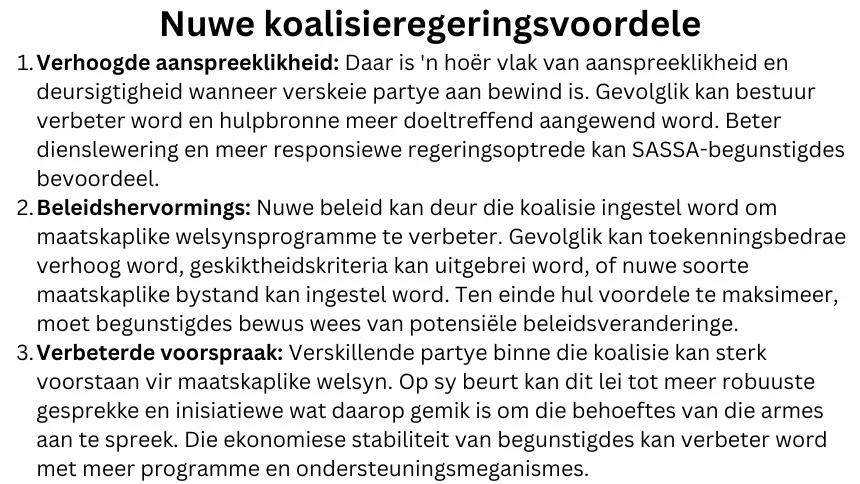
Change Preparation
To prepare for potential coalition government changes, SASSA beneficiaries can take several steps:
- Stay Informed: Keep up-to-date with SASSA and government announcements. SASSA Beneficiaries will be better able to understand how policy changes, budget decisions, and administrative updates may affect their grants if they stay informed about these changes.
- Financial Planning: Beneficiaries should plan their finances carefully because grant amounts and payment schedules may change. Any disruptions can be cushioned by setting aside savings and managing expenses prudently.
- Work with Community Organizations: Often, local non-profit organizations and community organizations provide additional support and advocacy for SASSA beneficiaries. Through these groups, you can gain access to resources and information that can help you navigate change.
- Defend your Rights: In the event that beneficiaries have concerns or needs, they should not be afraid to express them. It is possible to influence policy decisions by participating in community meetings, contacting local representatives, and engaging with social media campaigns.
Also Read About: SASSA R350 Status Check With Moya App
Future Prospects
With an eye toward the future, SASSA hopes to enhance its service delivery by adopting more advanced technologies, improving outreach to underserved areas, and reducing fraud and corruption. Policy reforms and increased funding for these initiatives may be possible under the new coalition government.
Conclusion
SASSA beneficiaries face both challenges and opportunities under the new coalition government. Even though there is uncertainty regarding policy continuity and budget allocation, increased accountability and policy reforms could enhance social welfare programs. A SASSA beneficiary can navigate these changes more effectively by staying informed, planning finances carefully, engaging with community organizations, and advocating for their rights.
SASSA beneficiaries need to remain proactive and resilient in adapting to the evolving political landscape as the new coalition government settles in.



